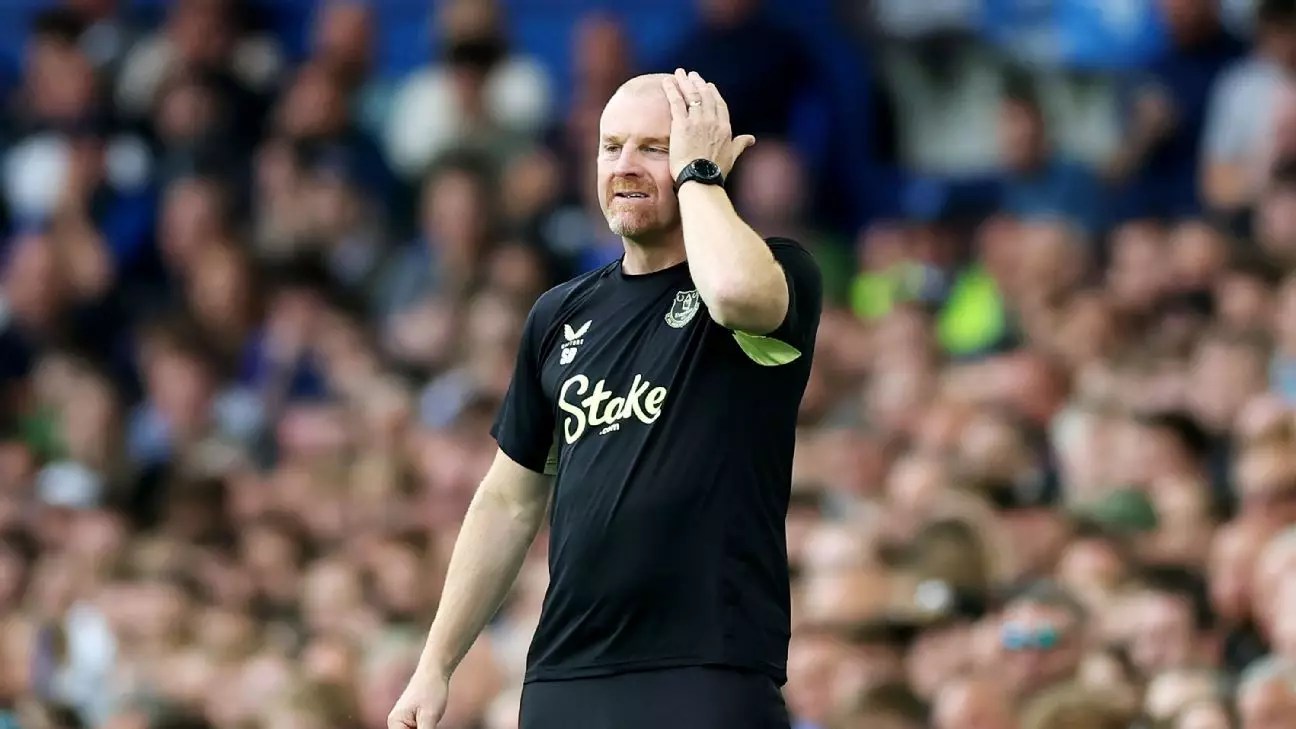In a significant turn of events for a club steeped in tradition and recent struggles, Sean Dyche has been relieved of his managerial duties at Everton, as confirmed by the club on Thursday. Taking charge mid-season in early 2023, Dyche’s tenure was marked by a fight against relegation, successfully navigating the club through turbulent waters over two seasons. However, the lack of offensive prowess—evident in the team’s meager 15 goals scored in 19 league matches—paired with a rather uninspired style of play led to mounting pressure from fans and stakeholders alike.
Everton’s standing at 16th in the Premier League speaks volumes about the urgency of the situation. The potential for relegation looms large, and each match becomes a heavyweight contest in a campaign that promised hope but delivered frustration. As the club seeks to stabilize its circumstances, Dyche’s exit feels like a culmination of unmet expectations rather than merely the result of a few poor performances.
The name on many fans’ lips is that of David Moyes. With a storied history at Everton, where he managed for eleven fruitful seasons before a controversial departure to Manchester United in 2013, his potential return to Goodison Park could signal a re-establishment of stability. Moyes’s tenure at Everton was characterized by solid defensive structures and a tactical astuteness that propelled the club to greater heights, ensuring survival in elite competition.
The prospect of Moyes leading Everton again raises questions about whether he can replicate past successes in a vastly altered footballing landscape. His recent experiences at West Ham United provide a mixed bag; while successful at moments, they ultimately ended in dissatisfaction. The current club structure, having recently transitioned to U.S. ownership under the Friedkin Group, presents both opportunities and challenges as they seek a fresh direction.
The club’s announcement of Dyche’s dismissal came just ahead of an FA Cup fixture against Peterborough, creating an atmosphere of uncertainty and anticipation among fans. As interim management is handled by club captain Seamus Coleman and former player Leighton Baines, the immediate focus shifts to bolstering team morale and reversing the current performance trajectory. Their leadership might bring an emotional connection and stability that the club needs during this tumultuous period.
Sorting through potential managerial candidates, Everton’s search will undoubtedly involve careful scrutiny of coaching philosophies and tactical alignment with the club’s core identity. With links to managers like Graham Potter, now signed to West Ham, and rumors surrounding high-profile names, the club carries the weight of expectation: a manager that not only understands the footballing ethos of Everton but also has the acumen to navigate the tricky waters of competitive modern football.
As Everton stands at a crossroads, the sacking of Sean Dyche presents a stark reflection of the club’s desperate need for rejuvenation. With plans for a new stadium on the horizon and fresh ambitions under new ownership, the club must now prioritize reconstructing not just the managerial landscape but also instilling confidence and fire back into a team that has lost its rhythm. The upcoming decisions will be pivotal, as Everton fans watch anxiously to see if history can indeed repeat itself with a familiar face or if a new vision will emerge to guide them through unpredictable waters.


Leave a Reply